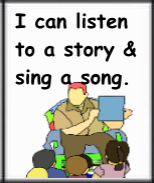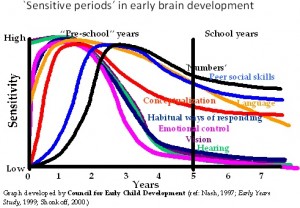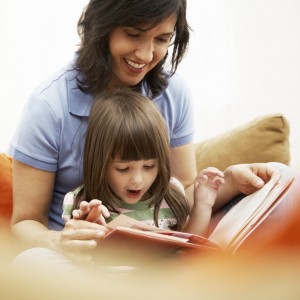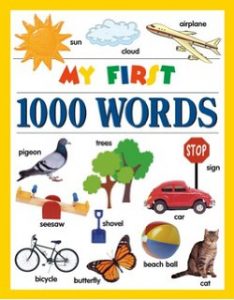What’s so important about listening to stories and singing songs? Because language stimulation is critical for kids. Any language and every word.

We all communicate to each other using language. While we also use gestures and facial expressions, we rely on words. Have you ever traveled to another country where you couldn’t speak the language? It’s a challenge. Some things are simple and we can act out what we need, draw pictures, or use our cell phones and a translation app, but that doesn’t always work. Especially when we try to explain problems or health issues. Miscommunication with directions means we can get lost or in the wrong place.

Language is so important that the brain starts learning it before babies are even born. But learning a language is a huge challenge. The brain’s best opportunity for learning a language is during the preschool years. In the graph below showing the most sensitive brain development times, language is the orange line.

Some very dedicated researchers discovered that kids hear between 3 and 10 million words a year! (Hart and Risley) Now that’s language stimulation! It’s too bad we don’t have watches and counters for words like we have for steps. 10,000 steps a day is awesome but 10,000 words a day is only a minimum.

Besides the words, stories and songs are important in a few other ways too. Listening to a story is more than paying attention. Kids also need to connect with the story. As children follow along, they link what they are hearing to their own experiences. Often, when kids hear something familiar in a story they can’t help blurting out comments. They might say, “Hey, that’s what I do,” or “That happens at my house.” We can tell kids are engaged and thinking when they listen to stories.

Songs are another way to up the word count in a day. They also give clues about some brain skills and memory. Songs use language as well as rhythm and patterns. The brain can take advantage of these to help learn and remember. When kids sing songs, we get an idea of what might be happening at a thinking level.

Susan Miller’s book is only 1,000 words. How big would it be for 1,000,000 ? Stories and songs are easy things to include in your child’s day. Books can be shared whenever you have a moment, not just at bedtime. Sing songs about getting dressed, the weather, animals, people, and your child’s special interests. Don’t worry about having a great singing voice. Kids are listening with their hearts, not just their ears. Even if we don’t have word-counters, include as much language stimulation as you can. Well, in a way we do because brains count words. How far will words go today?
